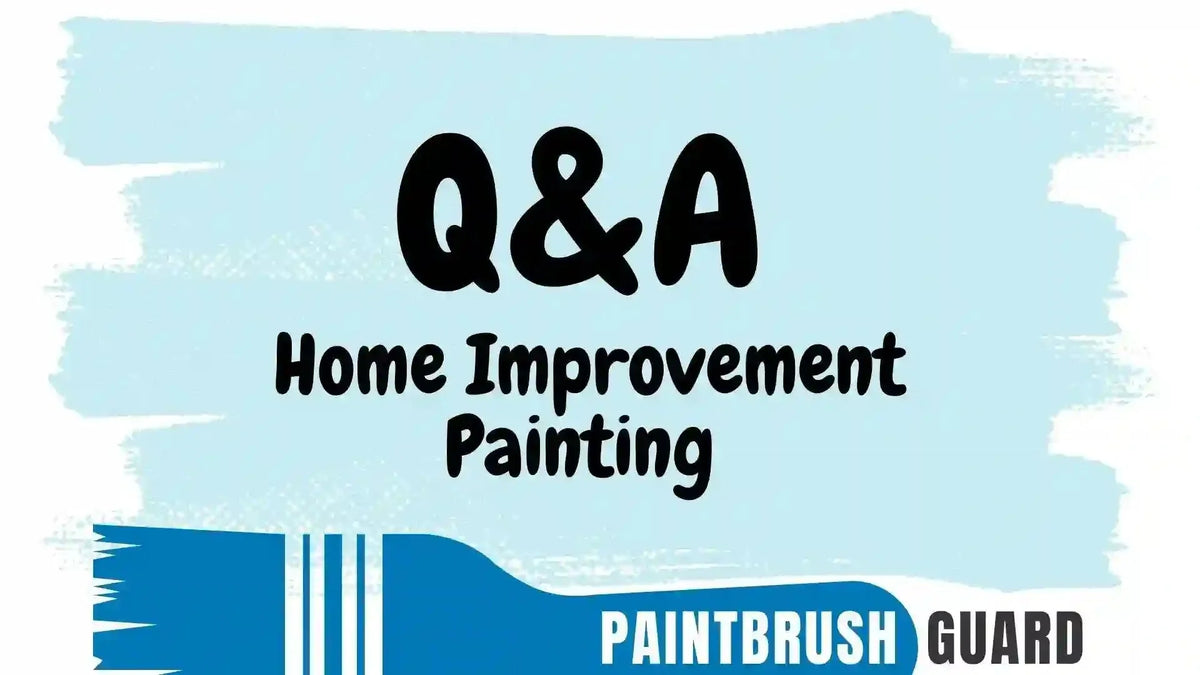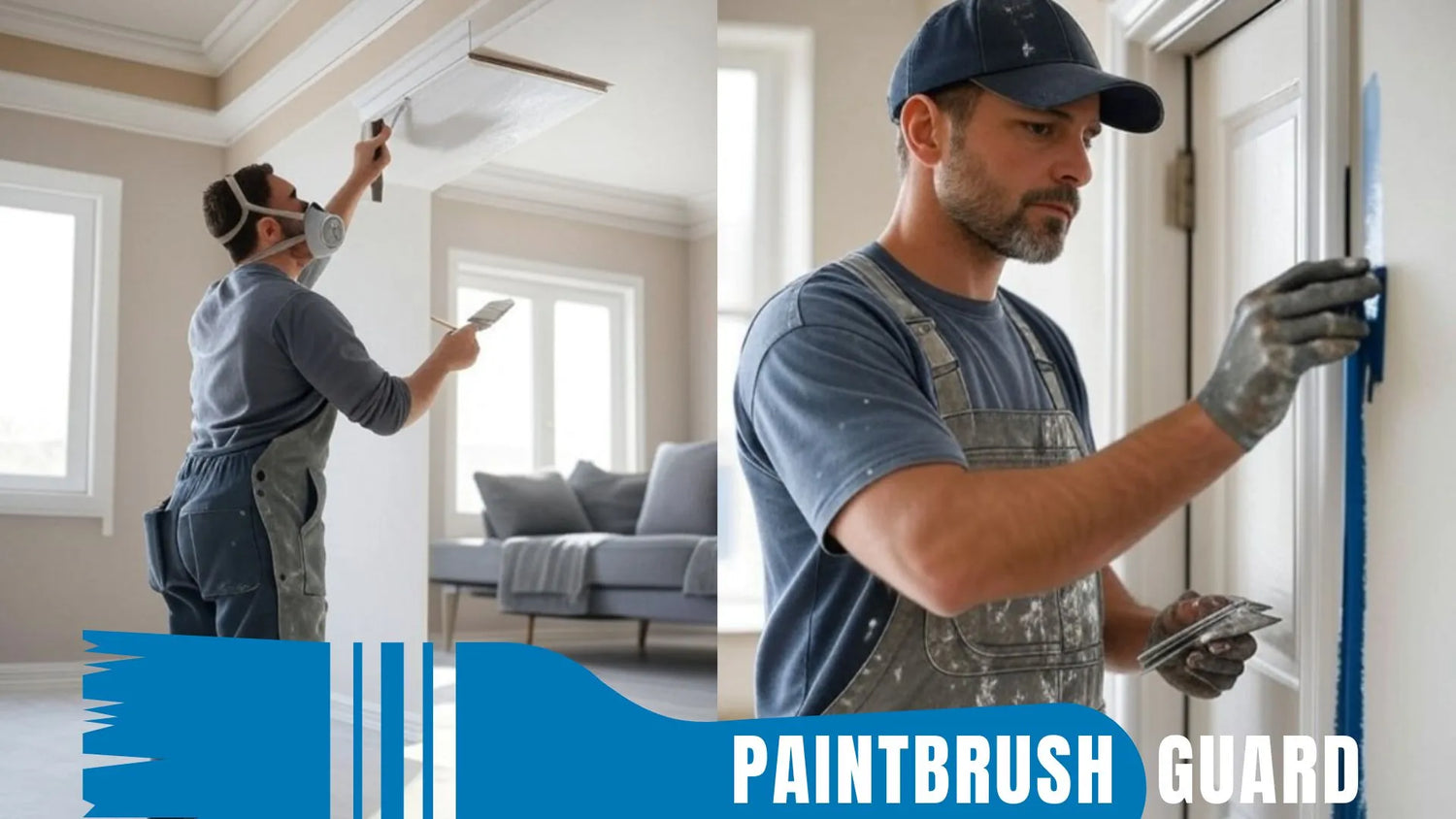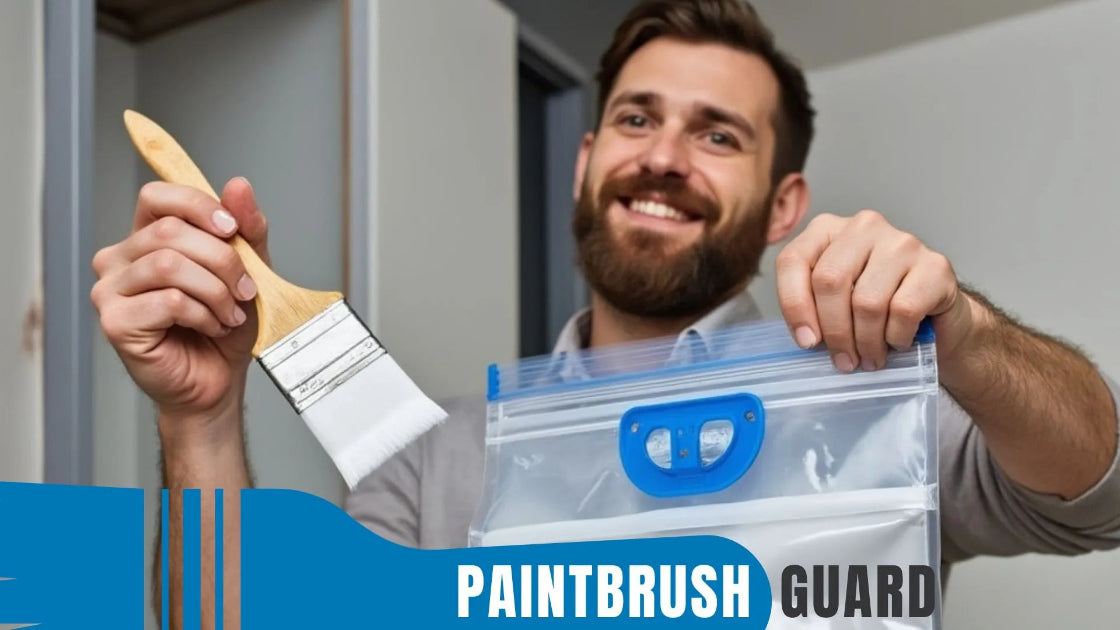
Cost of Cleaning Supplies for Paint Brushes
|
Time to read 5 min
|
Time to read 5 min
Cleaning supplies for paint brushes typically cost $5–$20, depending on the paint type, brush material, and cleaning method, with soap and water being the cheapest and solvents for oil-based paints being pricier.
If you are planning to paint your house interior, in this article you will learn easy steps to make your home interior feel new again with step-by-step guides for all interior surfaces.
For water-based paints like latex or acrylic, cleaning paint brushes is budget-friendly. A bar of soap or dish soap, priced at $1–$5, combined with tap water (free) is often enough.
A 2025 Home Depot listing shows a 16-ounce bottle of Dawn dish soap at about $3, sufficient for many cleanings.
A wire brush or comb, costing $2–$7, can help remove dried paint from bristles. These basic supplies keep expenses under $10 for multiple uses.
This article explores how Paintbrush Guard’s paintbrush vacuum storage saves money, promotes eco-friendly house painting practices and enhances efficiency.
Cleaning brushes used with oil-based paints requires solvents, increasing costs.
Mineral spirits or paint thinner cost $5–$15 per quart, with Klean-Strip priced at around $8 in 2025, per hardware store data.
You’ll need a container for soaking, like a metal or glass jar, at $3–$10 if not already owned.
Eco-friendly citrus-based cleaners, such as Goo Gone, run $7–$12 per bottle and are reusable for several cleanings.
Total costs for oil-based paint cleanup typically range from $10–$20.
With no cleanup required after a painting session, you can take a short break mid-project or wrap up your painting for the day, your brush stays ready without the need to clean.
For frequent painters, specialized tools can simplify cleaning but raise expenses. Brush cleaning combs, which separate bristles to remove paint, cost $5–$10.
A 2024 Amazon review noted a Purdy brush comb at $8, valued for its durability.
Spinner tools, which spin brushes to remove paint and water, range from $10–$20, with the Wooster Brush Spinner at $15 at Lowe’s in 2025.
These tools are optional but can prolong brush life, reducing long-term costs.
Learn more about Paintbrush Guard: This guide tackles the top 20 questions about storing paintbrushes, from quick breaks to long-term care, and even challenges like humid coastal areas.
Costs vary based on several factors. Brush size and material impact the amount of solvent or effort needed, larger or synthetic brushes may require more.
Paint type matters: water-based paints need minimal supplies, while oil-based paints demand costlier solvents.
Cleaning frequency also affects expenses; occasional painters may spend just $5 per job, while regular painters might invest in bulk supplies.
A 2024 PaintTalk survey found 60% of DIY painters spent under $15 yearly on brush cleaning supplies.
Clean brushes immediately after use to prevent dried paint, which requires more solvent or effort.
For water-based paints, rinse under running water before using soap to save on soap. For oil-based paints, reuse mineral spirits by letting paint sediment settle and decanting clean solvent for future use.
Using the Paintbrush Guard, priced at $10–$15, keeps brushes wet between sessions, reducing the need for frequent deep cleanings. Buying solvents in bulk, like a gallon of mineral spirits for $20, can lower per-use costs for regular painters.
Discover the best budget interior paint sprayers for 2025! Our detailed guide reviews the top 3 affordable interior paint sprayers for house interior painting.
Sometimes, cleaning isn’t cost-effective. Inexpensive brushes, priced at $1–$3, may not justify costly solvents or time, especially for small projects.
A 2023 Consumer Reports study found that low-quality brushes often lose bristles or shape after cleaning, making replacement more practical.
If a brush is heavily caked or damaged, buying a new one (priced at $8–$20 for quality brands) may be cheaper than spending $15 on cleaners or hours scrubbing.
Discover the best paint types for exterior deck painting in high traffic areas. Learn about acrylic latex, oil-based, epoxy, and urethane-based paint.
The cost of cleaning supplies for paint brushes ranges from $5 for soap and water to $20 for solvents needed for oil-based paints.
Paint type, brush quality, and cleaning frequency drive expenses, but immediate cleaning and reusing solvents can save money.
The Paintbrush Guard can enhance efficiency by keeping brushes wet, reducing cleanup needs.
For cheap or damaged brushes, replacing them may be more economical than cleaning, ensuring cost-effective results.
For water-based paints like latex or acrylic, you need mild dish soap and tap water to clean paint brushes effectively. A wire brush or comb can help remove dried paint from bristles. These simple supplies are sufficient for most cleanings, keeping brushes in good condition with minimal effort.
Cleaning brushes used with oil-based paints requires solvents like mineral spirits or paint thinner. You’ll also need a metal or glass container for soaking, along with a rag for wiping.
Specialized tools like brush cleaning combs help separate bristles to remove stubborn paint, while spinner tools spin brushes to remove paint and water efficiently. These optional tools make cleaning easier and can prolong brush life, especially for frequent painters tackling larger or more complex projects.
Clean brushes immediately after use to prevent paint from drying, reducing the need for extensive supplies. For water-based paints, rinse under running water before applying soap. For oil-based paints, reuse solvents by letting paint sediment settle and decanting clean solvent for future use, keeping maintenance efficient.
Replacing inexpensive or heavily damaged brushes is often more practical than cleaning them, especially if they’re caked with dried paint or have lost bristles and shape. Low-quality brushes may not withstand repeated cleanings, while high-quality brushes justify the effort to clean for long-term use in multiple projects.

Learn about eco-friendly painting, tips and tutorials on house interior and exterior surfaces, so you can get started with your project without any surprices during or after your painting.

Learn how interior house paint colors influence mood with expert tips on room preference so you can pick the best colors for a harmonious home environment.
We focus on the most popular shades for each interior colors, so you don't miss no matter what color you pick.

Learn how this innovative tool allows you to store paintbrushes without the need for immediate cleaning, offering significant advantages in time savings, water conservation, reduced chemical pollution, and lower costs for supplies.

